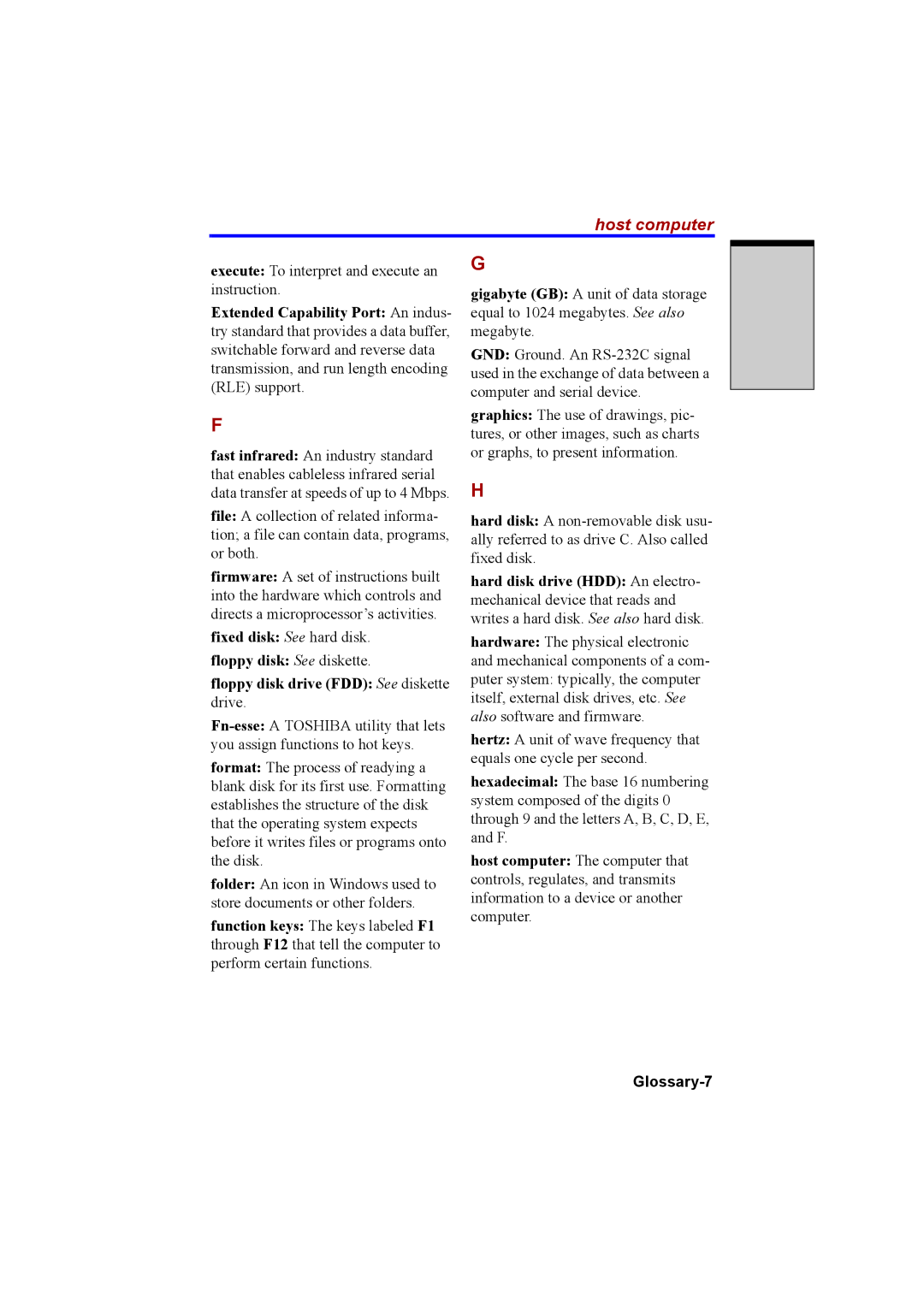
host computer
execute: To interpret and execute an instruction.
Extended Capability Port: An indus- try standard that provides a data buffer, switchable forward and reverse data transmission, and run length encoding (RLE) support.
F
fast infrared: An industry standard that enables cableless infrared serial data transfer at speeds of up to 4 Mbps.
file: A collection of related informa- tion; a file can contain data, programs, or both.
firmware: A set of instructions built into the hardware which controls and directs a microprocessor’s activities.
fixed disk: See hard disk.
floppy disk: See diskette.
floppy disk drive (FDD): See diskette drive.
format: The process of readying a blank disk for its first use. Formatting establishes the structure of the disk that the operating system expects before it writes files or programs onto the disk.
folder: An icon in Windows used to store documents or other folders.
function keys: The keys labeled F1 through F12 that tell the computer to perform certain functions.
G
gigabyte (GB): A unit of data storage equal to 1024 megabytes. See also megabyte.
GND: Ground. An
graphics: The use of drawings, pic- tures, or other images, such as charts or graphs, to present information.
H
hard disk: A
hard disk drive (HDD): An electro- mechanical device that reads and writes a hard disk. See also hard disk.
hardware: The physical electronic and mechanical components of a com- puter system: typically, the computer itself, external disk drives, etc. See also software and firmware.
hertz: A unit of wave frequency that equals one cycle per second.
hexadecimal: The base 16 numbering system composed of the digits 0 through 9 and the letters A, B, C, D, E, and F.
host computer: The computer that controls, regulates, and transmits information to a device or another computer.
